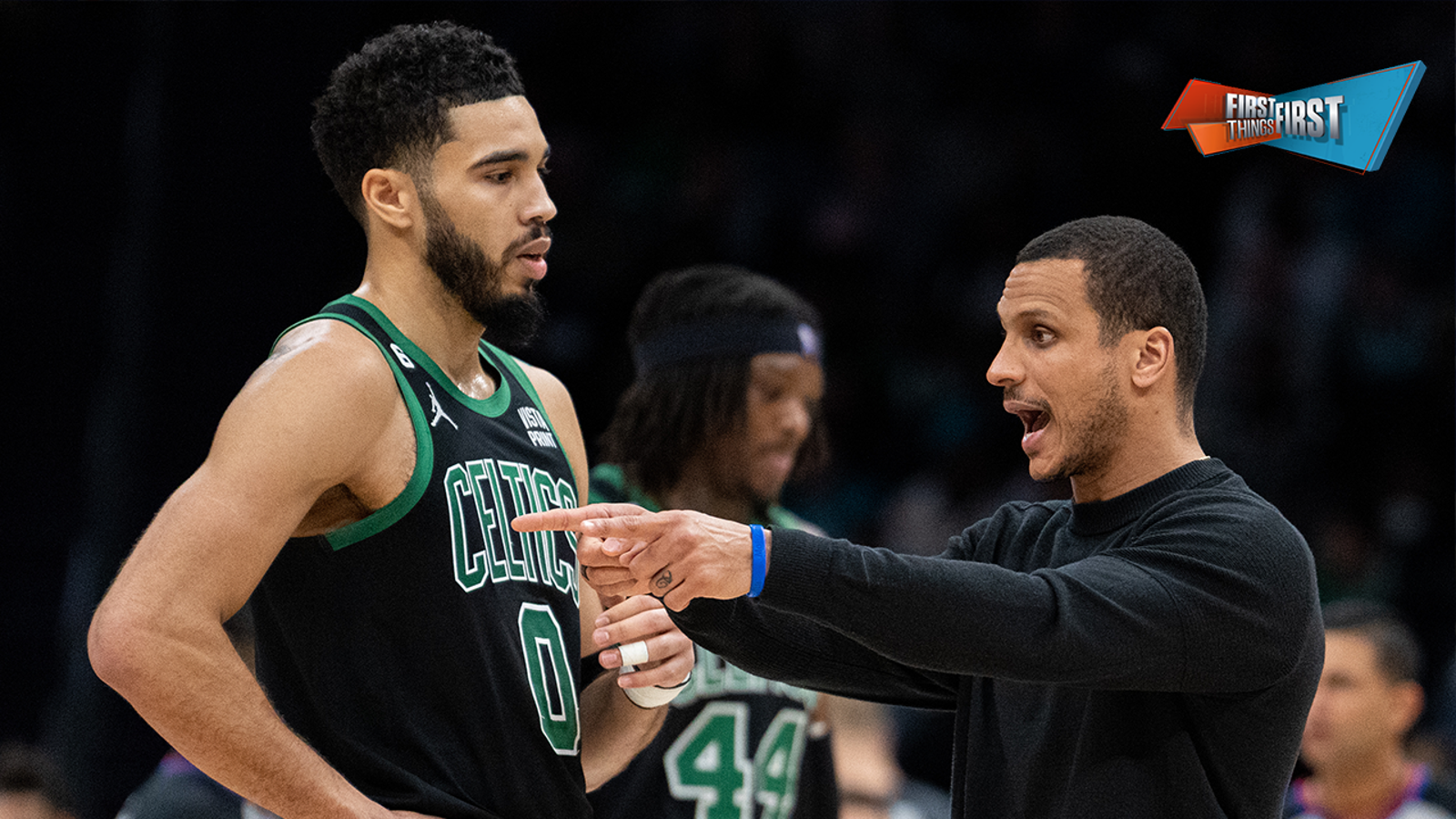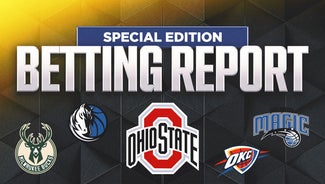
Next up for the Boston Celtics: Two massive, future-defining decisions
First, it seemed like the Boston Celtics were going to be embarrassed. Then, it seemed like they'd make NBA history. Finally, on Monday night, their Jekyll-and-Hyde season came to a disappointing end.
After becoming just the fourth NBA team to force a Game 7 in a best-of-seven series once falling behind 3-0, the Celtics were run off their home floor by the Miami Heat in a 103-84 loss.
[Heat avoid making wrong kind of history vs. Celtics, instead headed to NBA Finals]
It'd be silly to overreact to a Game 7 loss, especially one coming in the conference finals. But, given the track record of this current Celtics group and some looming contract situations, the defeat does bring the Celtics to a fork-in-the-road moment. This is an organization now facing difficult questions in need of immediate answers.
This is this core's fourth time losing in the conference finals in the past seven seasons. Does that mean they've reached their ceiling, or that they're just one small tweak away from breaking through? This was head coach Joe Mazulla's first year at the helm. Does a bumpy postseason performance mean he's the wrong guy to carry the Celtics forward, or is he someone who can grow in the job? Make the right choices, and next season the Celtics should be right back in the title mix. Make the wrong ones, and the whole foundation could collapse.
The first decision the Celtics will have to make is what to do with Mazzulla, who over the course of the playoffs has come under heavy public scrutiny. Much of that is unfair. Mazzulla is a 34-year-old, first-time NBA head coach who before this season had never even been a front-of-the-bench assistant in the NBA. He was thrust into this position as a result of the Ime Udoka suspension and did a commendable job. The Celtics won 57 games during the regular season and finished second in both offensive and defensive rating. The fact that the Celtics didn't roll over after falling behind 3-0 should count for something.
But the NBA playoffs are an entirely different game, and throughout these playoffs it became clear that Mazzulla wasn't yet ready for the spotlight. That's no knock; few with his background would be. But the Celtics defense falling off a cliff — they surrendered 113 points per 100 possessions, a middle-of-the-pack-regular season rate and nearly three-point drop-off from their regular season mark — is a red flag. So was the offense's repeated inability to execute in crunch time. Limiting the minutes of Robert Williams III and mostly benching Grant Williams, two of the team's best defenders, were curious moves. Getting defensive with the media also wasn't a great look.
It also became clear throughout the playoffs that Mazzulla didn't have complete buy-in from his players. Again, it's understandable. They're all basically the same age, there's no shared history between the group, and it's not like Mazzulla has an unimpeachable NBA background. But there were a number of comments from Celtics players throughout the playoffs which made clear that their confidence in their coach wasn't exactly unwavering.
"Joe's learning, just like all of us, you know," Celtics guard Marcus Smart said during the second-round series against Philadelphia. "I know he's been killed a lot — rightfully so, you know? He needs to make some adjustments. And he did that."
Still, it's important to remember that Brad Stevens, Boston's president of basketball operations — and a former coach himself — was a believer in Mazzulla even before the season he started. The Celtics even blocked the Utah Jazz from hiring Mazzulla after former Celtics assistant Will Hardy took over as the Jazz's head coach in the offseason. They believe in Mazzulla as a coach, and in his future. The issue is whether the Celtics players share those views. If they don't, and with a bunch of talented coaches on the market looking for new jobs, Stevens might not have a choice.
Whether to keep Mazzulla isn't the only major decision facing Stevens. He'll also have to decide whether he wants to double-down on the Jayson Tatum-Jaylen Brown duo.
Brown has just one year remaining on his current contract. After being named to the All-NBA second team this season, he's now eligible for a so-called "supermax" extension, which would be for five years and around $290 million. The Celtics can offer him that on July 1. Brown has made clear that he views himself as a max player (which he is). Also, remember in March when he had the following to say about the Celtics:
"It's hard coming into teams and organizations and being warm. They operate on different principles, I think," he told The Ringer. "This is an organization. They look at it as a business, where they'll tell you one thing, and then behind closed doors, they'll say another, and they'll trade you off. Tell you, ‘We love you,' and they'll be having like, ‘We're going to trade him next week.' I think that's just how business is run…I feel like a lot of times, when you deal in these corporate spaces, everybody wants to come through the back door or come through an angle."
Does that sound like someone who will have any tolerance for a negotiation? In other words: The Celtics should assume that Brown will reject any offer for less than the full supermax, and that he'll be insulted if said offer doesn't arrive at midnight on July 1. And the Celtics cannot, under any circumstance, let Brown reach unrestricted free agency in the summer of 2024 without a new deal and risk losing him for nothing. All of which leaves them with the following two options: Offer Brown the full supermax at midnight on July 1 or trade him.
Complicating all of this is that Tatum, who earned All-NBA first team honors last week, is now also eligible for a supermax extension. The Celtics can offer him that in the summer of 2024, which would extend his current deal through the 2029-30 season and cost the Celtics around $309 million.
Combine that with a potential new deal for Brown and the restrictive cap rules in the NBA's new collective bargaining agreement and suddenly the Celtics find themselves facing some difficult questions.
It's not just about whether ownership is willing to pay a luxury tax. The new CBA has something called a double apron. Cross that and, among other punishments, the ability to use a taxpayer mid-level exception disappears, as does the ability to send cash in trades and buy second-round picks. Eventually, first-round picks are taken away.
Tatum isn't going anywhere. And it's clear a team built around Tatum and Brown can go far. But is there something about the Tatum-Brown foundation that is holding the Celtics back? Both players, but Brown in particular, have their warts as playmakers, and the Celtics don't really run the offense through a point guard — would they be better off flipping Brown for an elite ball-handler who could help late in playoff games by snapping the pieces into place?
Chances are the Celtics sign Brown to an extension — then go from there. If things don't work out, they can always trade him later, and if he's signed long term, he'll have more value on the market. There are other options on the table for the Celtics, too. For example, they could try finding a point guard by moving either Smart or Derrick White.
Then again, maybe Stevens decides that it's silly to give up on a group just a year removed from a Finals run. Maybe he elects to run everything back, and bet on a mix of internal growth and chemistry. Only the people inside the building know just how tenuous the current situation is.
From the outside, however, one thing is clear: We're going to look back at this Game 7 defeat as the loss that changed everything for the Celtics.
That could mean one that brought the group together. It could also mean one that brought the whole thing down.
Yaron Weitzman is an NBA writer for FOX Sports. He is the author of "Tanking to the Top: The Philadelphia 76ers and the Most Audacious Process in the History of Professional Sports." Follow him on Twitter @YaronWeitzman.













